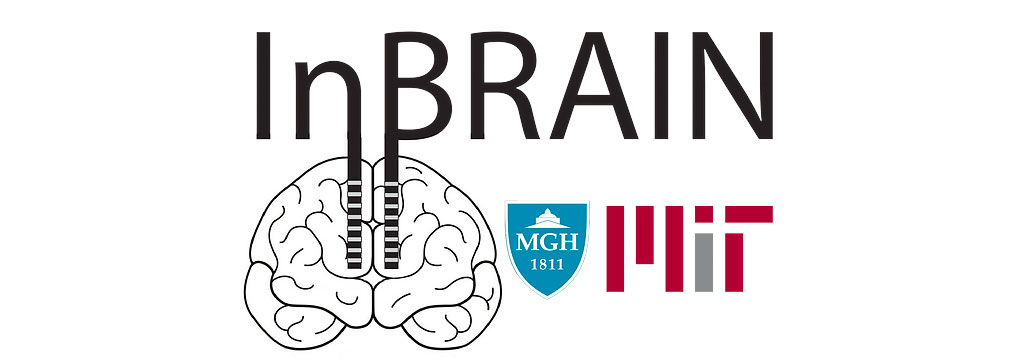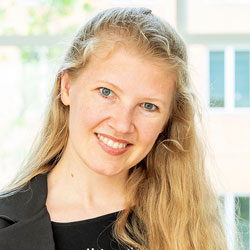InBRAIN
Major technological and scientific advances have opened a new era in neurosurgical therapies for people with epilepsy, movement, and psychiatric disorders. These invasive surgical procedures provide the unique ability to record and stimulate neuronal populations in precise brain regions, offering groundbreaking opportunities to explore how our brains perform a wide array of cognitive functions. To optimize these opportunities, Mass General Department of Neurosurgery and MIT Brain and Cognitive Sciences developed the InBRAIN (Intracranial Brain Recording, Analysis, and Intelligent Neuromodulation) Collaboration.

InBRAIN connects state-of-the-art clinical and research activities in intracranial human neuroscience at MGH with MIT’s expertise in engineering (signal processing, artificial intelligence, electrode design) and basic research on the brain (computational models of neural information processing, primate neurophysiology, cognitive neuroscience).
InBRAIN employs a team neuroscience approach to create:
- Opportunities for ethical, innovative, in vivo human basic and translational neuroscience research
- Robust data standards, management, and sharing (via a data warehouse for neurophysiology, imaging, and behavioral data)
- Educational opportunities for MIT students and MGH trainees
- New approaches to patient and community engagement in neuroscience
Past Events
1st Annual MGH-MIT InBRAIN Human Intracranial Neuroscience Symposium (December 9, 2022)
Ether Dome, Massachusetts General Hospital
Click here for schedule.
Co-directors

Nancy Kanwisher, PhD
Rosenblith Professor of Cognitive Neuroscience
MIT Brain and Cognitive Sciences

Ev Fedorenko, PhD
Associate Professor of Neuroscience
MIT Brain and Cognitive Sciences

Mark Richardson, MD, PhD
Director of Functional Neurosurgery, Mass General Hospital
Visiting Associate Professor, MIT Brain and Cognitive Sciences
Staff

Hezekiah Branch, MS
Data Engineer and Scientist

